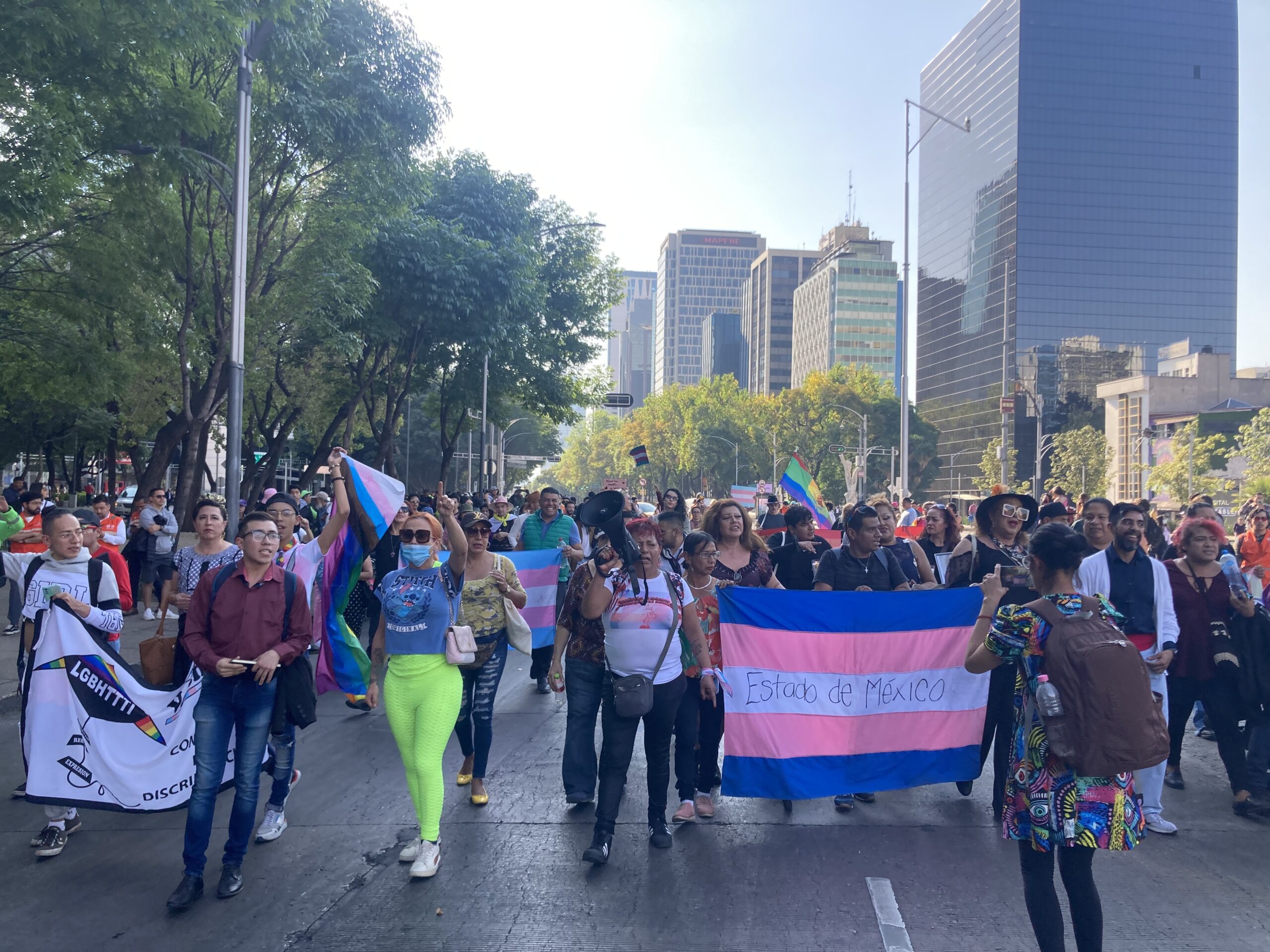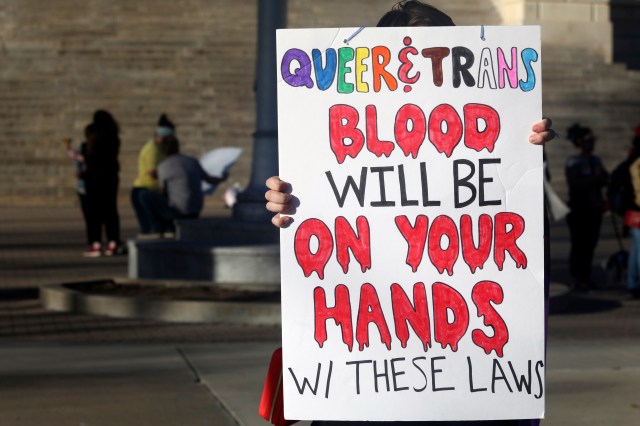
Samantha Gómez Fonseca, an activist and Morena party Senate hopeful, was the fourth transgender woman to be murdered in the country this month.
MEXICO CITY (CN) — Protests calling for the dignity of transgender women closed off Reforma Avenue this week following the murder of activist Samantha Gómez Fonseca.
Gómez Fonseca was shot to death outside of Mexico City’s South Men’s Preventive Prison in the district of Xochimilco on Sunday afternoon after visiting her romantic partner in the prison.
The protest was already in the works before her murder due to the uptick in violence against trans women this year. Gómez Fonseca had planned on attending the protest.
Martí Batres, the head of government of Mexico City, said in a Monday morning press conference that Gómez “was shot and killed while leaving the prison in a DiDi taxi as the car approached a speed bump. The murderer seems to have anticipated her route out of the prison area and was waiting for her.”
In a security video recorded from a store across the street from the shooting, a man is seen concealing a weapon under what looks to be a towel. He waits for the car to pass over a speed bump and shoots multiple shots directly into the back right side passenger seat. The car keeps driving and the man gets away, running through a parking lot away from where the shooting occurred.
The assailant is still at large.
Gómez Fonseca spent the last 14 years of her life as an outspoken LGBTQ+ activist, receiving the 2022 Medal of Merit of Human Rights Defenders, which is awarded by Mexico City’s Congress “to any person, nongovernmental organization, public or private institution, which has excelled in their work for the defense, promotion, respect, protection and guarantee of human rights,” per the organization’s website.
Mexico’s National Human Rights Commission spoke out against her murder, noting the intensified violence against transgender women this year and that Gómez Fonseca had lodged a complained “in April of last year with the Second Inspector General of this Commission, due to the threats and harassment of which she was a victim.”
Gaby Ortiz, a beauty stylist, was found lifeless on a rural road in the municipality of Ixmiquilpan, Hidalgo, on Jan. 6.
A “threatening message” was written on cardboard tied to her body, according to local officials.
Five days later, Miriam Ríos, municipal commissioner of the Citizen Movement party in the municipality of Jacona, Michoacán, where she was also coordinator of an LGBTQ+ collective, was shot and killed.
This past Saturday, an unidentified trans woman was found lifeless in Tlaquepaque, Jalisco.
According to data collected by Trans Murder Monitoring, from October 2022 to September 2023, there have been 52 trans women killed in Mexico, second in Latin American countries.
On top of that, LGBTQ+ rights group LetraEse has documented 453 violent deaths of members of the LGBTQ+ community between 2018 and 2022, an average of seven people each month.
According to the group: “trans women were the most numerous victims, with 48 transfemicides. This figure is equivalent to 55.2% of total cases. These figures allow us to estimate a rate of 15 homicides per 100,000 transgender inhabitants. This figure is higher than the overall homicide rate of cis women reported by the National Institute of Statistics and Geography in 2021, which is equivalent to 6 per 100,000 inhabitants.”
This crime comes right after Mexico’s first nonbinary judge, Jesús Ociel Baena Saucedo, was killed in November of 2023 with their partner. They were 38 years old and also an outspoken LGBTQ+ rights activist.
The protests took on added indignation on the heels of President Andrés Manuel López Obrador’s comments referring to Salma Luévano, a trans Morena party member of the Chamber of Deputies, as a “man dressed as a woman” in his morning news conference on Jan. 9.
The group called for peaceful protest as they marched toward Mexico’s Senate. They urged justice for Samantha Fonseca and trans women in general, urging “not one more, not one more murder.”
Alejandra Salazar of the Coalition for Female Sex Workers demanded “an end to hatred towards the trans population” and urged for “the understanding that trans rights are different” than those of the rest of the population.
“It is not an issue of mere sexual preference but an issue of identity,” Salazar said. “Freedom of expression under Mexican law gives trans people the right to express themselves in all sectors of Mexican society, in all economic and social levels. And because of this we are demanding rights, equality and not one more to be murdered due to their identity.”



